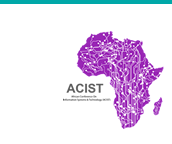Blended learning in the wake of ICT infrastructure deficiencies: The case of a Zimbabwean University
Location
Harare, Zimbabwe and Virtual
Start Date
15-9-2023 3:00 PM
End Date
15-9-2023 3:30 PM
Description
In the wake of debates between actors in the Zimbabwean higher education sector about the effectiveness of e-learning models, it is important to investigate the effectiveness of using blended learning at a time when infrastructure challenges are disrupting ICT access. This paper aims to address this quest for a deeper understanding by investigating students' perceptions of blended learning at a selected Zimbabwean university. Twelve in-depth interviews were conducted with students from a Zimbabwean university that employs blended learning under an interpretivist paradigm. Vygotsky's Zone of Proximal Development (ZPD) was used for conceptualising students' cognitive development and Engestrom's (2003) Third-generation Activity Theory(AT) as a framework for assessing the home and the university activity systems that characterise blended learning. Findings show that blended learning can be implemented in universities with poor ICT infrastructure since asynchronous blended learning using learning management systems such as Moodle allows content to be downloaded from connected areas for offline study. The study contributes to policies on the implementation of blended learning in institutions of higher learning by showing how it enables cognitive development in the ZPD.
Included in
Blended learning in the wake of ICT infrastructure deficiencies: The case of a Zimbabwean University
Harare, Zimbabwe and Virtual
In the wake of debates between actors in the Zimbabwean higher education sector about the effectiveness of e-learning models, it is important to investigate the effectiveness of using blended learning at a time when infrastructure challenges are disrupting ICT access. This paper aims to address this quest for a deeper understanding by investigating students' perceptions of blended learning at a selected Zimbabwean university. Twelve in-depth interviews were conducted with students from a Zimbabwean university that employs blended learning under an interpretivist paradigm. Vygotsky's Zone of Proximal Development (ZPD) was used for conceptualising students' cognitive development and Engestrom's (2003) Third-generation Activity Theory(AT) as a framework for assessing the home and the university activity systems that characterise blended learning. Findings show that blended learning can be implemented in universities with poor ICT infrastructure since asynchronous blended learning using learning management systems such as Moodle allows content to be downloaded from connected areas for offline study. The study contributes to policies on the implementation of blended learning in institutions of higher learning by showing how it enables cognitive development in the ZPD.



